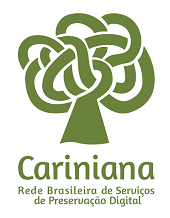Didactic potentials of children historical fiction literature in history teaching: a study with 6th grade portuguese students
DOI:
https://doi.org/10.5433/2238-3018.2014v20n1p7Keywords:
History Education, Substantive concepts, Narrative, Historical fictionAbstract
This paper presents a study dealing with the use of historical fiction in teaching history, and seeking to highlight the potentials of this teaching resource on the construction of historical knowledge. The study was carried out with a class of 26 students, from 6th grade (11-12 year olds) of an urban school in northern Portugal, and sought to analyse students' substantive ideas related to April Revolution when exploring two pieces of juvenile historical fiction literature: "The Treasure" by Manuel António Pina and "Story of a Flower" by Matilde Rosa Araújo. It was intended to notice the answers to the following questions: Which are the potentials of using historical fiction in history teaching, and particularly to understanding April Revolution? Which kind of influences do students reveal their narratives about this kind of educational resource comparing with other sources (historical, historiographical and pictorial sources)? Students accomplished several tasks that led to the production of two narratives. They were challenged to answer: 1) How would you tell a young foreigner the New State was like? 2) How would you tell a tourist that about the April 25 Revolution? Students' content narratives were inductively analysed and categorized by levels of progression from less elaborate ideas to more sophisticated and complex concepts. This study highlighted that historical fiction pieces are important resources for students' constructing historical knowledge as regards the substantive concept of April Revolution. It was also stressed that the kind of historical fiction (more historiographical or myth-symbolic) may affect differently students' historical thinking construction.
Downloads
References
BARCA, I. A Aula Oficina em História: do projecto à avaliação. In: BARCA, I. (Org.), Para uma Educação Histórica de Qualidade. Braga: CIEd, Universidade do Minho, 2004, p. 131-144.
BARTON, K. Narrative Simplifications in Elementary Students' Historical Thinking, In: BROPHY, J. (Ed.). Advances in Research on Teaching, Volume 6 Greenwhich: JAI Pres Inc., p. 51-83, 1996.
BRUNER, J. Actual minds, possible worlds. Cambridge, MA: Harvard University Press, 1986.
COOPER, H. History in the Early Years: Teaching and Learning in the first three Years of School. London: Routledge, 1995.
COX, K.; HUGHES, P. History and children's fiction. In: HOODLESS P. (Org.). History and English in the primary school: exploiting the links. London: Routledge, 1998, p. 87-101.
EGAN, K. O uso da Narrativa como Técnica de Ensino. Lisboa: Publicações Dom Quixote, 1994.
ELLIOT, J. El cambio educativo desde la investigación-acción. Madrid: Ediciones Morata, 1996.
FERTUZINHOS, C. A Aprendizagem da História no 1º Ciclo do Ensino Básico e o uso do Texto Prosa e a Banda Desenhada- Um estudo com alunos do 4.º ano de escolaridade. 2004. Dissertação (Mestrado em Educação) - Instituto de Educação e Psicologia, Universidade do Minho, Braga, 2004.
FIGUEIREDO, M. A. O 25 de Abril na literatura para crianças e jovens. Dissertação de Mestrados em Estudos Portugueses Interdisciplinares. Lisboa: Universidade Aberta, 2006.
FREEMAN, E. B.; LEVSTIK, L. Recreating the Past: Historical Fiction in the Social Studies. The Elementary Journal, v. 88, n. 4, p. 329-337, Mar. 1988.
FREITAS, M. L. V.; SOLÉ, M. G. Desenvolvimento integrado de competências linguísticas e de compreensão histórica através do uso da narrativa: da teoria à prática. In: AZEVEDO F. (Coord.). Actas do 1.º Encontro Internacional A Criança, a Língua e o Texto Literári. Braga: Universidade do Minho, Instituto de Estudos da Criança, 2003, p. 43-76. (em formato CD/ROM). http://hdl.handle.net/1822/4238)
HOODLESS, P. Children's awareness of time in story and historical fiction. In: HOODLESS P. (Ed.) History and English in the primary school: exploiting the links. London: Routledge, 1998, p. 103-115.
HUSBANDS, C. What is History Teaching? Language, Ideas and Meaning in Learning about the Past. Buckingham: Open University Press, 1996.
LEVSTIK, L.; PAPPAS, C. Exploring the development of historical understanding. Journal of Research and Development in Education, v. 21, n. 1, p. 1-15, 1987.
LEVSTIK, L.; PAPPAS, C. New directions for studying historical understanding. Theory and Research in Social Education, v. 20, n.º 4, p 369-385, 1992.
MELO, M. C. O conhecimento tácito histórico dos adolescentes. Braga: Instituto de Educação e Psicologia- Universidade do Minho, 2002.
PACHECO, J. A. (Org.). Componentes do processo de desenvolvimento do currículo. Braga: Livraria Minho, 1999.
PARENTE, R. A Narrativa na Aula de História: um estudo com alunos do 3.º ciclo do Ensino Básico. Dissertação de Mestrado em Educação. Área de Supervisão Pedagógica em Ensino da História. Braga: Universidade do Minho, Instituto de Educação e Psicologia, 2004.
PINA, M. O Tesouro. Ilustrações de Evelina Oliveira. Porto: Campo das Letras, 2005.
PIRES, C. M. A investigação-acção como suporte ao desenvolvimento profissional docente. EDUSER: Revista de Educação, v. 2, n. 2, p. 66-83, 2010.
ROLDÃO, M. C. O pensamento concreto da criança. Lisboa: Instituto de Inovação Educacional, 1994.
ROLDÃO, M. C. As Histórias em educação- A função mediática da narrativa. Ensinus, 3, 25-28.
SAMARÃO, A. A Narrativa em Contextos Culturais Diferentes: um estudo com Alunos do 2º Ciclo do Ensino Básico. (Dissertação de Mestrado em Educação). Supervisão Pedagógica em Ensino da História. Braga: Instituto de Educação e Psicologia/Universidade do Minho, 2007.
SOLÉ, G. A primeira república na literatura infanto-juvenil: a ficção histórica na construção do pensamento histórico. In: VIANA, F.; RAMOS, R.; COQUET, E.; MARTINS, M. (Coord.), Atas do 9.º Encontro Nacional (7º Internacional) de Investigação em Leitura, Literatura Infantil e Ilustração Braga: CIEC - Centro de Investigação em Estudos da Criança da Universidade do Minho, pp. 386-412, (CD/Rom).
SOLÉ, G. A História no 1º Ciclo do Ensino Básico: a Concepção do Tempo e a Compreensão Histórica das crianças e os Contextos para o seu Desenvolvimento. 2009 Tese (Doutorado) - Universidade do Minho, Instituto de Estudos da Criança, Braga, 2009.
SOUZA, R. J. de. A leitura do texto literário: formando professores do ensino fundamental para o uso do "Kit Literatura em Minha Casa". In: AZEVEDO, F. (Coord.), Actas do 1º Encontro Internacional A Criança, a Língua e o Texto Literário, Braga: Instituto de Estudos da Criança, Universidade do Minho, 2003, p.297-302 (em formato CD/ROM). Disponível em http://hdl.handle.net/1822/4238). (acedido em 2-7-13)
ZAMBONI, E.; FONSECA, S. Contribuições da literatura infantil para a aprendizagem de noções do tempo histórico leituras e indagações. Cadernos Cedes, Campinas, v. 30, n. 2, p. 339-353, 2010. Disponível em http://www.cedes.unicamp.br. (acedido em 10-7-13)
VANSLEDRIGHT, B. A.; BROPHY, J. Storytelling imagination and fanciful elaboration in children's historical reconstructions. American Education Research Journal, v. 4, n. 29, 1992, p. 837-859.
Downloads
Published
How to Cite
Issue
Section
License
Copyright (c) 2014 História & Ensino

This work is licensed under a Creative Commons Attribution 4.0 International License.
História & Ensino adota a licença CC-BY esta licença permite que os reutilizadores distribuam, remixem, adaptem e criem a partir do material em qualquer meio ou formato, desde que a atribuição seja dada ao criador. A licença permite o uso comercial.






















